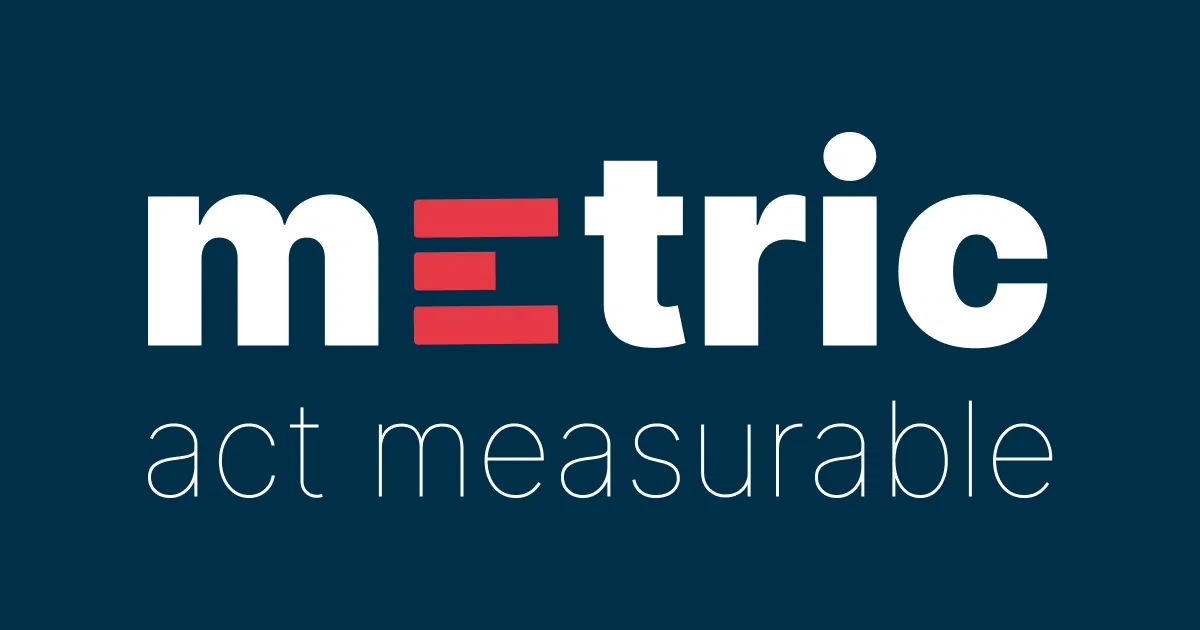# դատարկ tuple ստեղծել
tup = ()
# կամ
tup = tuple()
print(tup)06 Tuple, Set, Dictionary
 լուսանկարի հղումը, Հեղինակ՝ Naira Babayan
լուսանկարի հղումը, Հեղինակ՝ Naira Babayan
Setthe Controls for the Heart of the Sun
(c) Pink Floyd
🎦 Տեսադասեր + լրացուցիչ
ToDo 1. Տեսություն 2025
2. Տեսություն 2023 (ToDo)
3. Գործնական 2025
4. Գործնական 2023 (ToDo)
5. Որոշ տնայինների լուծումներ (ToDo)
Google Forms ToDo
📚 Նյութը
Tuple-ներ
Ըստ էության tupleը նույն listնա, որին որ չի կարելի փոփոխել (immutable են)
tuple-ի ստեղծում
# էլեմենտներով tuple ստեղծել
tup = (1, "ողջույն", True)
tup = 1, "ողջույն", True
print(tup)# եթե լիստ ունենք կարանք դարձնենք իրան tuple, երևի գուշակում եք թե ոնց՝
lst = [1, "ողջույն", True]
tup = tuple(lst)
print(tup)# եթե ուզում ենք tupleի էլեմենտները բաժանենք տարբեր փոփոխականների մեջ, կարանք անենք՝
print(tup)
a, b = 15, 509
a, b, c = tup
print(a, b, c, sep="\n")tuple(i**2 for i in range(10))
# եթե զուտ (i**2 for i in range(10)) գրենք կսարքենք generator կոչվող բան, որը հետո ենք անցնելուTupleին էլեմենտ ավելացնել
tup.append(1)"asdas"[0] = "A"# tup.append("պանիր")
tup = (15, 508)
print(tup[0])
tup[0] = 12
print(tup)- immutable - string, tuple
- mutable - list
tup[0] = 0 # TypeErrorճարներս ինչ, պետքա նոր tuple սարքենք
new_tuple = tup + ("ժարիտ", 509)
print(new_tuple)indexing / slicing (նույն ձև ոնց listը)
print(new_tuple[1]) # prints: "ողջույն"
print(new_tuple[1:4]) # prints: ('ողջույն', True, 'ժարիտ')
print(new_tuple[-1]) # Output: 509ցիկլ պտտվելը (լրիվ նույն ձև)
for element in new_tuple:
print(element)
max((1,2,3))tuple(i**2 for i in range(10))Առավելություններ
- tuple-ների հետ ավելի ապահովա, որովհետև կարանք վստահ լինենք որ ոչ մեկ մեր tuple-ը չի փոխի
- հիշողության տեսանկյունից ավելի օպտիմալ են
set-եր (բազմություններ)
my_set = set() # my_set = {}
print(type(my_set))
# my_set = {}
# print(type(my_set))my_set = {4, 3, 3, 2}
print(my_set)my_set = set()
for _ in range(5):
my_set.add(input()) # append-ի փոխարեն add
print(my_set)for i in my_set:
print(i)my_set1 = {}
print(type(my_set1)) # զգույշ ենք լինումէլմենտ ավելացնել / հեռացնել
my_set = {4, 3, 3, 2}
print(my_set)
print(my_set)
# my_set.append()
my_set.add(5) # ոչ թե գրում ենք my_set = my_set.add(4)
print(my_set)
my_set.remove(3)
print(my_set)
print(my_set.pop())
print(my_set)for i in my_set:
print(i)Բազմությունների հետ գործողություններ
set1 = {1, 2, 3, 4}
set2 = {3, 4, 5, 6}
# Միավորում
print(set1.union(set2)) # Output: {1, 2, 3, 4, 5, 6}
# կամ էլ
# set1 | set2 (կամ) # caps lock + right shift-ի կողքը 6
# Հատում
print(set1.intersection(set2)) # Output: {3, 4}
# կամ էլ
# set1 & set2 (և) # uppercase 6
# Տարբերություն
print(set1.difference(set2)) # Output: {1, 2}
# կամ էլ
# print(set1 - set2)
# Սիմետրիկ տարբերություն
print(set1.symmetric_difference(set2)) # Output: {1, 2, 5, 6}
# կամ էլ
# set1 ^ set2 # uppercase 6Set comparison
a = {1, 2, 3, "a", "b"}
b = {2, 1, 3, "b"}
print(a >= b)
# >, >=, <, <=Հերթականություն
forum-ում քննարկում set-երի հերթականության վերաբերյալ
a = ['պանիր', 'փիղ', 11, 12]
print(a)
print(set(a))set(a)[0]print(a)
# print(set(a)[0])
print()
print(list(set(a)))
print(list(set(a))[0])my_set = {1, 4, 4, 3, 2}
for element in my_set:
print(element)set comprehension
-5, 6 թվերի քառակուսիների բազմությունը ստեղծել
lst = []
for i in range(-5, 6):
lst.append(i**2)
print(lst)
lst = [i**2 for i in range(-5,6)]
print(lst)s = set() # s = {}
for i in range(-5, 6):
s.add(i**2)
# print(s)
print(s)[] - list
() - tuple
{} - sets = [i**2 for i in range(-5,6)]
print(s)
s = tuple(i**2 for i in range(-5,6))
print(s)
s = {i**2 for i in range(-5,6)}
print(s)Կարանք հանգիստ in, sum len ․․ օգտագործենք
print(s)
print(f"{4 in s = }")
print(f"{len(s) = }")
print(f"{sum(s) = }")Dictionary (բառարան)
Json
anun = ["aik", "bik"]
hamarner = ["+1", "+2"]
contacts = [["aik", "+1"], ["bik", "+2"]]Alice-ը՝ 25 տարեկան ա, Bob-ը՝ 30, Charlie-ն 35: Python-ով պահեք էդ ինֆորմացիան
Ներածություն
d = {}
d = dict()
print(type(d))tariqner = {"Alice": 25, "Bob": 30,
"Charlie": 35}
print(type(tariqner))
print(tariqner)print(tariqner["Alice"]) # [0]# Նոր մարդ ավելացնել
tariqner["Dumbledore"] = 40
print(tariqner)# փոփոխել արժեքը
tariqner["Dumbledore"] += 1
print(tariqner)# ջնջել մարդու
del tariqner["Charlie"] # deleteprint(tariqner)print(tariqner.keys())
print(tariqner.values())print(tariqner.keys()[0])print(list(tariqner.keys()))
print(list(tariqner.keys())[0])tariqner[1] = "12312"print(tariqner)tariqner[False] = "Barevner"
print(tariqner)tariqner[False]tariqner[3.14] = "pi"tariqner[[1,2]] = 12312for mard in tariqner: # կամ tariqner.keys()
print(mard)for t in tariqner.values():
print(t)print(tariqner.items())for i in tariqner.items():
print(i, type(i))
for i in tariqner.items():
name, age = i # i[0], i[1]
print(name, age)for name, age in tariqner.items():
print(name, age)Methods
print(len(tariqner))key, value, items
print(tariqner.keys())print(list(tariqner.keys()))print(tariqner.values())
print(list(tariqner.values()))print(tariqner.items())
print(list(tariqner.items()))Արժեք ստանալ (get)
tariqner['ժուլիեն']tariqner.get('Alice')
# գրում ենք բանալին, ու թե ինչ պետք ա վերադարձնի եթե չկա էդ բանալինprint(tariqner.get('ժուլիեն'))print(tariqner.get('ժուլիեն', "Չկա"))
print(tariqner.get('Alice', "Չկա"))update
print(tariqner)
urish_dict = {"John": 32, "Smith": 32, "Alice": 27}
tariqner.update(urish_dict)
print(tariqner)Dict comprehension
{i for i in range(-5,6)}{i:i**2 for i in range(-5,6)}{key:value for ...}Nested (ներդրված) dictionaries
contacts = {
"Alice": {"phone": "123-456-7890", "email": "alice@gmail.com"},
"Bob": {"phone": "098-78-88-78", "address": "Bobastan"}
}print(contacts.keys())print(contacts['Bob'].keys())print(contacts["Bob"]["phone"])contacts['Bob']['email'] = "123123@..$"
print(contacts['Bob'])🛠️ Գործնական (ToDo)
Հաշվել որ մրգից քանի հատ կա
mrger = ["apple", "banana", "apple", "orange", "banana", "apple"]mrger_set = set(mrger)
print(mrger_set, len(mrger_set))count_dict = {}
for i in mrger_set:
count_dict[i] = mrger.count(i)
{i:mrger.count(i) for i in mrger_set}count_dict = {}
for mirg in mrger_set:
count = 0
for j in mrger:
if mirg == j:
count += 1
count_dict[mirg] = count
count_dict count_dict = {}
# if len(mrger) == len(set(mrger)):
# print({i:1 for i in mrger_set})
for mirg in mrger:
print(mirg, count_dict)
if mirg not in count_dict:
count_dict[mirg] = 1
else:
count_dict[mirg] += 1
count_dict
count_dict = {i:0 for i in mrger_set}
for mirg in mrger:
count_dict[mirg] += 1count_dict = {}
print(count_dict)
for mirg in mrger:
if mirg not in count_dict:
count_dict[mirg] = 0
count_dict[mirg] += 1
print(count_dict)Telegram
Settings -> Advanced -> (Scroll down) Export Telegram data -> (Scroll down) Choose “Machine readable JSON” -> Export
import json
PATH = "result.json"
with open(PATH, "r") as f:
data = json.load(f)chats = data["chats"]["list"]
chats[0]["type"]'public_supergroup'types = [i["type"] for i in chats]
count_dict = {i:0 for i in types}
for i in types:
count_dict[i] += 1
count_dict{'public_supergroup': 4, 'public_channel': 23}count_has_message = 0
chats_not_empty = []
for chat in chats:
if chat["messages"]:
count_has_message += 1
chats_not_empty.append(chat["name"])
print(f"Perc - {count_has_message / len(chats) * 100:.2f}")
print(chats_not_empty)Perc - 18.52
['Չատերի պահով, երևացող նամակներ', 'Մետրիկ Դասընթաց', 'Հայախոս մաթեմատիկայի համայնք', 'ՄաթԹիմ և ԻԿՄ ֆակուլտետի ՈՒԳԸ', 'դըբդֆհֆտվդվ']chats_list_not_empty = [chat for chat in chats if chat["messages"]]msg_counts = {}
for chat in chats_list_not_empty:
count = 0
msgs = chat["messages"]
for msg in msgs:
if msg["type"] == "message":
count += 1
msg_counts[chat["name"]] = count
print(msg_counts)
# if chat["name"][""]
# print(*chat["messages"][10:15], sep="\n"){'Չատերի պահով, երևացող նամակներ': 5, 'Մետրիկ Դասընթաց': 133, 'Հայախոս մաթեմատիկայի համայնք': 12, 'ՄաթԹիմ և ԻԿՄ ֆակուլտետի ՈՒԳԸ': 13, 'դըբդֆհֆտվդվ': 18}🏡Տնային
Հիմնական տնային
Լուծումներ
🎲 6
- ▶️Johnny Harris
- ▶️Random link
- 🇦🇲🎶Ցայգ
- 🌐🎶Jethro Tull
- 🤌Կարգին
